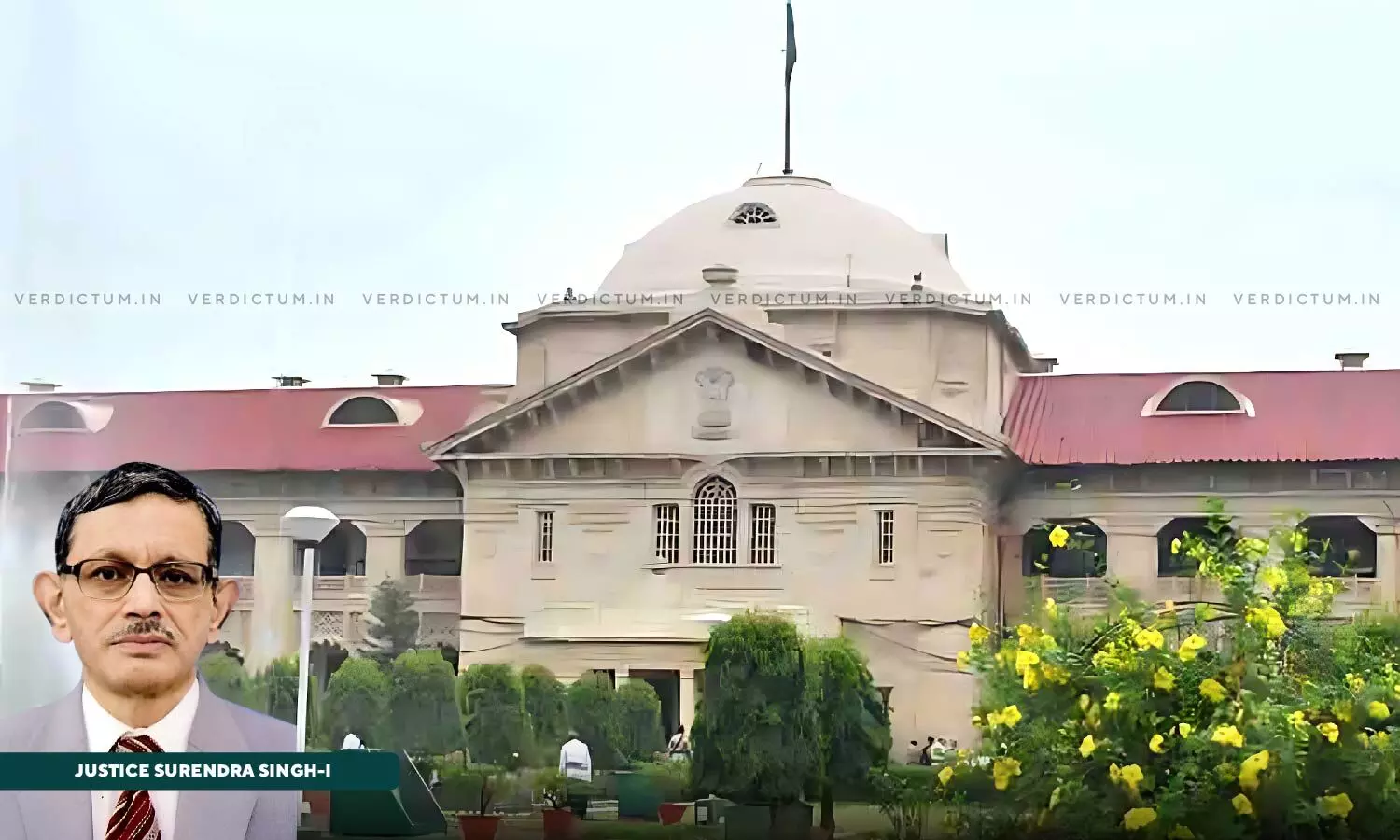
Section 195(1)(b) CrPC Does Not Bar FIR Registration Where Alleged Forgery Is Committed In Document Outside Court: Allahabad HC
 |
|The Allahabad High Court observed that Section 195(1)(b) of the Criminal Procedure Code (CrPC) does not bar FIR registration where an alleged forgery has been committed in the document outside the court.
The Court was dealing with a criminal revision filed for challenging the judgment of the Civil Judge under Section 156(3) of CrPC.
A Single Bench of Justice Surendra Singh-I said, “Considering the law laid down by the Hon’ble Apex Court in Sachida Nand Singh (supra), it is obvious that Magistrate has wrongly held that Section 195 (1) (b) Cr.P.C. bars registration of FIR even in a case where alleged forgery has been committed in the document out side the Court and thereafter, it has been filed in a judicial proceedings in a case pending in a Court.”
Advocate Ganesh Kumar represented the revisionist while Advocate Phool Chandra Singh represented the opposite parties.
Facts of the Case -
The Trial Court rejected the application of the revisionist filed under Section 156(3) CrPC for directing the Station House Officer, Police Station to register and investigate the criminal case against the opposite party. The counsel for the revisionist submitted that revisionist had filed an application under Section 156 (3) CrPC alleging that his younger brother (opposite party) committed forgery and obtained the registered will deed by his father in 1994. He further submitted that revisionist had filed a Civil Suit before the Civil Judge and had challenged the will deed. This suit was decreed in favour of the revisionist and will deed executed in favour of the opposite party was cancelled. After ten months of the decree of the suit, the opposite party instituted an Original Suit for cancellation of the said order. The aforesaid suit instituted by the opposite party was rejected by the Civil Judge (Senior Division) in 1997 and hence, he filed revision before the District Judge which was also rejected in 1998. Against this, he filed a writ petition which was dismissed in 1999.
The opposite party after concealment of earlier order passed by the competent court cancelling the will deed, filed mutation proceedings with false affidavit and forged cancelled will dated before Tehsildar-Sadar, District Basti based on the affidavit and will deed. The Court concerned passed order in favour of him in 2007 and directed the Revenue Authority to record his name in place of his father. Thereafter, the Tahsildar allowed the recall application of the revisionist and directed to record the name of revisionist and his real brother in place of their father in revenue record. Against the aforesaid order, the opposite party filed an appeal before the Sub Divisional Magistrate under Section 210 of the Land Revenue Act, 1901 (LRA) which was rejected. Subsequently, the opposite party concealing the earlier proceedings initiated before the authority concerned, instituted the further mutation proceedings under Section 34 of LRA for recording his name over the property of his father, but it was rejected. The Magistrate rejected the application of the revisionist and hence, he approached the High Court.
The High Court in view of the facts and circumstances of the case noted, “Apart from this Section 195 (1) (b) Cr.P.C., imposes no bar on registration of a criminal case relating to such forge documents, it merely bars that the Magistrate shall not take cognizance of an offence regarding such forged document unless the Court, in which, forgery has been committed, filed a complaint case in accordance with the provision of Section 340 Cr.P.C. The Magistrate has not discussed or given any other reason for rejecting the application filed under Section 156 (3) Cr.P.C. and also has not considered the other point raised in the application for registering a criminal case regarding alleged forged affidavit and false will.”
The Court further said that whiling passing the impugned order, the Magistrate committed illegality and has not exercised the jurisdiction vested in him, in accordance with law.
It, therefore, directed the Magistrate to pass a fresh order on the application of the revisionist filed under Section 156(3) CrPC after giving an opportunity of hearing to the revisionist/applicant.
The Court also directed the Magistrate to dispose of the application under Section 156(3) CrPC without being influenced by any observation made in its order except that relating to non-applicability of Section 195(1)(b) CrPC to the facts of the case.
Accordingly, the High Court allowed the criminal revision and set aside the impugned order.
Cause Title- Vishwanath v. State of U.P. And 2 Others (Neutral Citation: 2024:AHC:50554)
Appearance:
Revisionist: Advocate Ganesh Kumar
Opposite Parties: Advocates Phool Chandra Singh, Alok Singh, and Sumitra Singh.